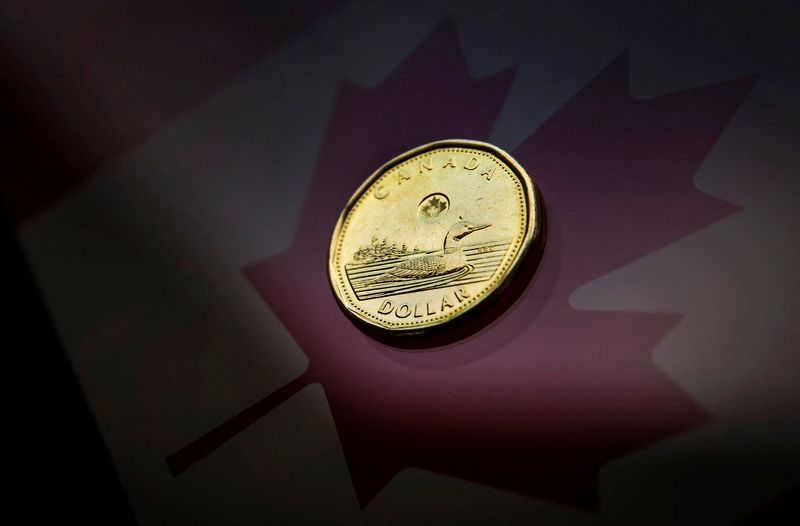By Fergal Smith
TORONTO (Reuters) - The Canadian dollar is forecast to extend its recovery against its U.S. counterpart in the coming year as lower borrowing costs bolster economic growth in Canada and increase investor appetite for risk, a Reuters poll found.
Canada's loonie has rallied by 3.3% since hitting a near two-year low of 1.3946 per U.S. dollar, or 71.71 U.S. cents, in August.
The median forecast of nearly 40 foreign exchange analysts in the Sept. 30–Oct. 2 poll showed the loonie consolidating those gains in three months, edging 0.1% lower to 1.3514, but remaining stronger than the 1.3650 expected in a September poll.
In a year, the currency was predicted to advance 1.7% to 1.3275, compared to 1.3333 seen previously.
The Bank of Canada is expected to continue reducing its benchmark interest rate over the coming months after cutting it by 75 basis points since June to 4.25%, while the U.S. Federal Reserve began its own easing campaign in September.
Canada's economy is particularly sensitive to interest rates. Its mortgage cycle is shorter than some other major economies, while household debt as a share of net disposable income, at 184% in 2023, is the highest by far in the G7, according to OECD data.
"Domestic rate cuts will begin to noticeably stimulate the domestic economy, while Fed easing should also be a boost for risk conditions more generally, all of which offers a constructive backdrop for the loonie in the new year," said Nick Rees, senior FX market analyst at Monex Europe.
Canada is a major producer of commodities, including oil, so its currency tends to be sensitive to shifts in investor sentiment. One potential wild card is the outcome of the U.S. election in November.
"We look for a modestly stronger loonie in 2025 as the U.S. dollar sheds some of what it gained by being a carry recipient," Avery Shenfeld and Katherine Judge, economists at CIBC Capital Markets, said of the interest income investors earn by buying the greenback and selling lower-yielding currencies.
"U.S. fiscal and trade policies could alter that view post the U.S. election," the economists added in a note.

"But at this point, there's too much uncertainty about who will take the White House, the make-up of Congress, or which presidential campaign pledges would actually see the light of day, to factor that in to any significant degree."
(Other stories from the October Reuters foreign exchange poll)